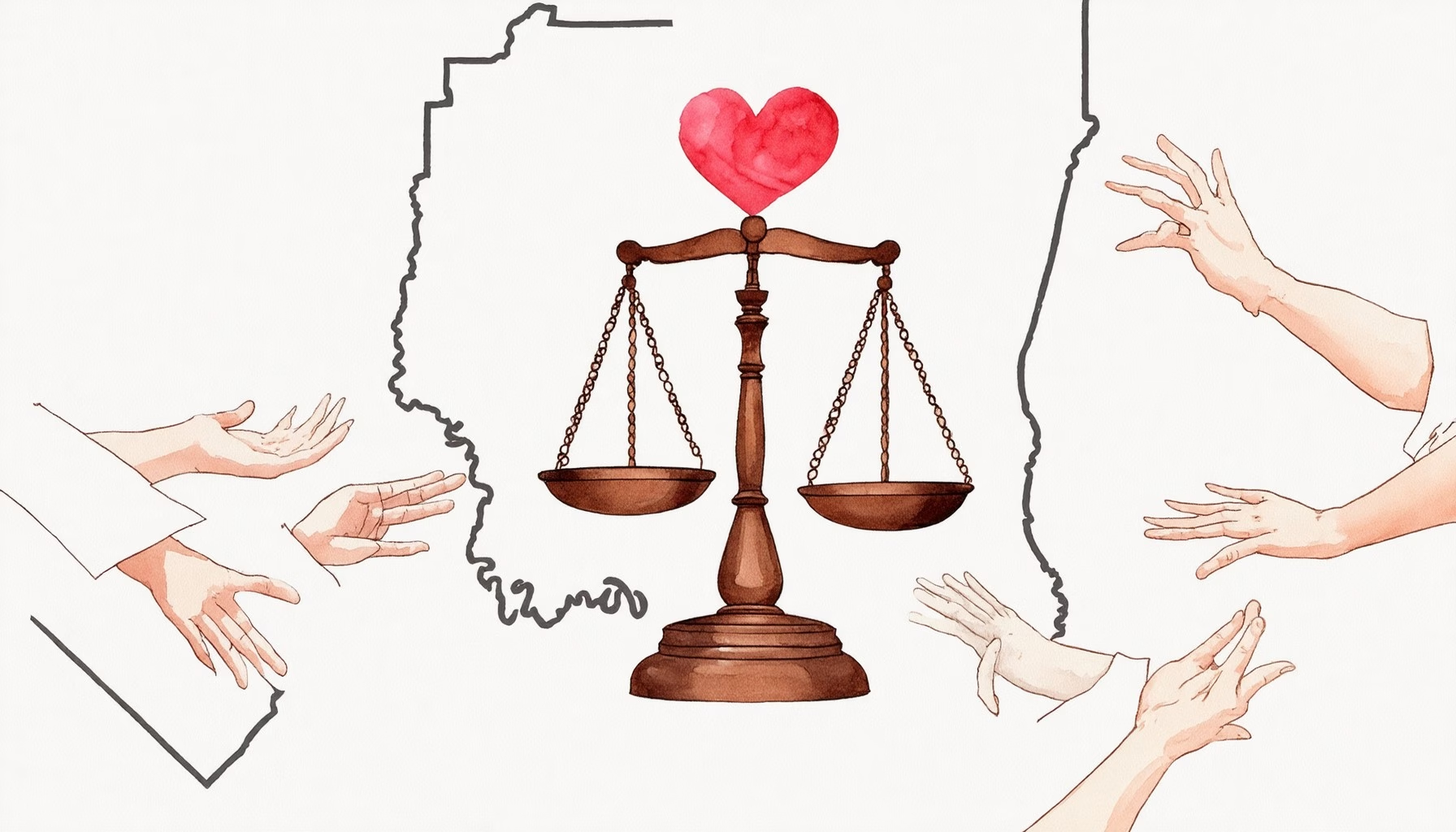Key Takeaways
- Free legal aid is available for low-income families, ensuring access to justice regardless of financial status.
- Eligibility for legal aid in Indiana requires income to be at or below 125% of the Federal Poverty Guidelines.
- Applicants must provide documentation to verify income, including pay stubs and tax returns, to qualify for legal assistance.
- Legal aid services cover various legal issues, including family law, housing disputes, and public benefits.
- Finding free legal representation is vital; resources like the Legal Services Corporation can help connect you with local legal aid offices.
- Understanding the specific income limits and eligibility requirements is crucial for accessing free legal services effectively.
Understanding the eligibility to get free legal aid is crucial for low-income families seeking legal assistance. In this article, we will explore the maximum income limits that determine who qualifies for legal aid, as well as the specific eligibility requirements in Indiana. We will also discuss the documentation needed to prove income, the costs associated with hiring a legal aid lawyer, and how to find free lawyers for low-income families in your area. By the end of this article, you will have a comprehensive understanding of the legal aid eligibility requirements and the resources available to help you navigate your legal challenges effectively.
What is the maximum income to qualify for legal aid?
Understanding the maximum income to qualify for legal aid is crucial for individuals seeking legal assistance. Legal aid provides essential support to those who cannot afford legal representation, ensuring that everyone has access to justice. The income limits for legal aid vary by state and are influenced by factors such as family size and specific legal needs. This section will delve into the legal aid income limits and the eligibility requirements that determine who can access these vital legal services.
Legal Aid Income Limits Explained
To qualify for legal aid, individuals must meet specific income thresholds. As of the latest updates, individuals with a gross income of up to $30,000 may be eligible for legal representation in various cases, including criminal, family, and immigration matters. It’s important to note that these income limits can vary based on family size and specific circumstances. For example, a family of four may have a higher income threshold to qualify compared to a single individual.
Legal aid services are designed to assist those who cannot afford legal representation, ensuring access to justice for low-income individuals. For the most accurate and updated information, applicants should refer to the official Legal Aid Alberta website or consult with a legal professional. You can find more details on legal aid eligibility and the application process.
Understanding Legal Aid Eligibility Requirements
Eligibility for legal aid is not solely based on income; it also considers the type of legal issue at hand. Legal aid typically covers cases involving family law, housing disputes, and criminal defense. To qualify, applicants must demonstrate that they cannot afford a private attorney and that their legal issue falls within the scope of services provided by legal aid organizations.
In addition to income limits, applicants may need to provide documentation to verify their financial situation. This may include pay stubs, tax returns, and other financial records. Understanding these eligibility requirements is essential for individuals seeking legal aid services effectively.

Who is Eligible for Legal Services in Indiana?
In Indiana, individuals seeking legal assistance from Indiana Legal Services (ILS) must meet specific eligibility criteria primarily based on financial need. Here are the key guidelines:
- Income Threshold: Applicants must have an income that is at or below 125% of the Federal Poverty Guidelines. For example, as of 2023, this means a household of one must earn less than approximately $17,500 annually, while a family of four must earn less than about $36,500.
- Residency Requirement: Applicants must be residents of Indiana to qualify for services. This ensures that legal assistance is provided to those who are part of the local community.
- Type of Legal Issues: ILS typically handles civil legal matters, including but not limited to family law, housing issues, public benefits, and consumer rights. Criminal cases are generally outside the scope of services provided.
- Additional Considerations: Certain cases may have specific eligibility requirements based on the nature of the legal issue. For instance, domestic violence cases may have expedited processes.
- Application Process: Interested individuals can apply for services through the ILS website or by contacting their local office. The application process includes a review of financial and legal eligibility.
For more detailed information, applicants can refer to the Indiana Legal Services website or consult the Federal Poverty Guidelines published by the U.S. Department of Health and Human Services.
Legal Aid Eligibility Requirements in Indiana
Understanding the legal aid eligibility requirements in Indiana is crucial for those seeking assistance. The primary factors that determine eligibility include:
- Financial Need: As mentioned, income must be at or below the specified threshold. This ensures that legal aid is directed towards those who truly need it.
- Legal Issue Type: Legal aid services are generally available for civil matters. Individuals facing issues related to family law, such as divorce or custody disputes, may find support through free family lawyers or low-income family lawyers.
- Special Circumstances: Certain populations, such as seniors or victims of domestic violence, may have additional resources or expedited services available to them.
For those interested in how to qualify for legal aid family law or other civil matters, it’s advisable to reach out directly to ILS or visit their website for comprehensive guidance on the application process and available resources.
What is the maximum income to get legal aid?
Understanding the maximum income to qualify for legal aid is essential for individuals seeking legal assistance free of charge. Legal aid programs are designed to help those who cannot afford legal representation, and income thresholds play a critical role in determining eligibility. The income limits for legal aid vary by state and are influenced by factors such as family size and specific legal needs.
Income Threshold for Legal Aid Qualification
The income threshold for legal aid qualification is typically set to ensure that assistance is directed towards those most in need. For example, in many jurisdictions, the maximum gross annual income for a single individual seeking legal aid is often around $15,000 to $20,000, while for a family of four, this limit may rise to approximately $30,000 to $40,000. However, these figures can differ significantly based on local regulations and the type of legal services required.
To determine if you meet the legal aid income limits, it’s crucial to consider all sources of income, including wages, social security benefits, and any other financial support. Additionally, some states allow for deductions based on necessary expenses, which can help lower your assessable income and potentially qualify you for aid even if your gross income exceeds the standard limits.
How to Qualify for Legal Aid Family Law
When it comes to how to qualify for legal aid family law, the process often involves specific criteria tailored to family-related legal issues such as divorce or custody disputes. Applicants must demonstrate not only their income eligibility but also the nature of their legal needs. Here are key steps to follow:
- Complete an Application: Fill out the legal aid application form, providing detailed information about your financial situation and the legal issue at hand.
- Provide Documentation: Submit proof of income, which may include pay stubs, tax returns, or bank statements. This documentation is crucial for verifying your eligibility.
- Consult Legal Aid Resources: Utilize resources such as Understanding legal aid eligibility to better understand the requirements and process.
- Seek Assistance: If needed, reach out to local legal aid organizations for help in navigating the application process. They can provide guidance on what to include and how to present your case effectively.
By following these steps and understanding the legal aid eligibility requirements, you can increase your chances of receiving the necessary support for your family law matters.
Does Legal Aid Ask for Proof of Income?
When applying for legal aid, one of the essential steps is providing proof of income. Legal aid organizations require documentation to verify your financial situation, ensuring that you meet the legal aid income limits set by your state or local jurisdiction. This process is crucial for determining your eligibility for free legal services.
Documentation Needed for Legal Aid Applications
To successfully apply for legal aid, you will typically need to submit various documents that demonstrate your income and financial status. Commonly required documents include:
- Recent pay stubs or proof of income from employment
- Tax returns from the previous year
- Bank statements showing your financial activity
- Proof of government assistance, if applicable (e.g., Social Security, unemployment benefits)
- Any other relevant financial documents that reflect your current situation
Providing accurate and complete documentation is vital, as it helps legal aid organizations assess your legal aid eligibility and ensures you receive the appropriate support. If you have questions about what specific documents are needed, consider visiting resources like the Legal Services Corporation for guidance.
Legal Aid Requirements for Income Verification
Each legal aid organization may have slightly different requirements for income verification, but generally, they adhere to similar standards. The primary goal is to confirm that your income falls below the established income threshold for legal aid qualification. This threshold varies by state and can depend on the size of your household.
In addition to income verification, legal aid organizations may also consider other factors, such as:
- Your household size and composition
- Any significant expenses that impact your financial situation
- Special circumstances that may affect your eligibility, such as disability or age
Understanding these legal aid requirements can help streamline your application process. For more detailed information on how to qualify for legal aid, check out our guide on how to get legal aid.

How Much Does a Legal Aid Lawyer Cost?
Understanding the costs associated with legal aid services is crucial for individuals seeking assistance. Legal aid programs are designed to provide support to those who cannot afford traditional legal fees. The good news is that many legal aid services are offered at little to no cost, making them accessible to low-income families. Below, we explore the cost comparison between legal aid and private lawyers, as well as what to expect when seeking free legal assistance.
Cost Comparison: Legal Aid vs. Private Lawyers
When comparing the costs of legal aid lawyers to private attorneys, the differences are significant. Legal aid lawyers typically provide their services for free or at a reduced cost based on income eligibility. This is particularly beneficial for low-income families who may struggle to pay for legal representation. In contrast, private lawyers often charge hourly rates that can range from $100 to $500 or more, depending on their experience and the complexity of the case.
Here are some key points to consider:
- Legal Aid Services: Many legal aid organizations offer free legal services, including representation in family law cases, housing disputes, and more. They focus on helping those who meet specific income limits for legal aid.
- Private Lawyers: Hiring a private attorney can lead to substantial legal fees, which may not be feasible for low-income individuals. This can create barriers to accessing necessary legal support.
- Sliding Scale Fees: Some private lawyers may offer sliding scale fees based on income, but this is less common than the free services provided by legal aid organizations.
Free Lawyers for Low-Income Families: What to Expect
For families with limited financial resources, finding free lawyers can be a lifeline. Legal aid programs often have specific criteria to determine eligibility, ensuring that those in genuine need receive assistance. Here’s what you can expect when seeking free legal services:
- Initial Consultation: Many legal aid organizations provide an initial consultation at no cost, allowing you to discuss your case and determine if you qualify for their services.
- Documentation Requirements: As mentioned earlier, legal aid programs typically require proof of income to assess eligibility. This may include pay stubs, tax returns, and bank statements.
- Types of Cases Covered: Legal aid services often cover a range of issues, including family law, housing, and public benefits. Understanding the scope of services can help you determine if you qualify for assistance.
For more information on how to get free legal aid and understand the eligibility requirements, visit Understanding Legal Aid Eligibility. Additionally, resources like the Legal Services Corporation can provide further guidance on accessing legal assistance.
Legal Aid Near Me: Finding Local Resources
Finding local legal aid resources is essential for individuals seeking assistance with legal issues but who may not have the financial means to hire a private attorney. Legal aid organizations provide free legal services to those who meet specific eligibility criteria, primarily based on income limits. To ensure you receive the help you need, here’s how to get free legal aid in your area.
How to Get Free Legal Aid in Your Area
To access free legal aid, start by identifying legal aid organizations in your locality. You can use resources like Legal Services Corporation or American Bar Association to find reputable legal aid offices. These organizations often have websites where you can check eligibility requirements and apply for services online.
- Visit Legal Services Corporation to find local legal aid offices.
- Check Nolo for legal information and resources tailored to your needs.
- Contact local bar associations for referrals to free or low-cost legal services.
- Utilize LawHelp.org to connect with local legal aid offices and self-help resources.
Legal aid lawyers typically provide their services at no cost for individuals who meet specific income eligibility criteria. These not-for-profit legal aid organizations aim to assist those who cannot afford private legal representation. Many legal aid offices primarily serve clients with very low incomes, but some may have more flexible income guidelines to accommodate a broader range of applicants.
Low-Income Family Lawyers: Services Offered
Low-income family lawyers offer a variety of services designed to assist families facing legal challenges. These services often include:
- Representation in family law cases, such as divorce, custody, and child support.
- Assistance with domestic violence cases, including obtaining restraining orders.
- Guidance on adoption and guardianship matters.
- Help with legal documents and self-representation resources.
In addition to free legal representation, many legal aid offices offer self-help resources, including legal information and guidance on various legal issues, which can empower individuals to navigate their legal challenges independently. For those who do not qualify for legal aid, alternative low-cost legal services may be available through local bar associations or legal clinics, which often provide reduced-fee consultations.
To learn more about how to qualify for legal aid family law services, visit this guide for comprehensive information on eligibility and resources.
Legal Assistance Free: Understanding Available Services
Accessing legal assistance free is crucial for individuals facing legal challenges, especially those from low-income backgrounds. Understanding the types of services available can help you navigate your legal issues effectively. This section will explore the options for obtaining free legal aid and the specific services offered to those who qualify.
Free Divorce Lawyer for Low-Income Families
For families experiencing divorce, finding a free divorce lawyer for low-income individuals can significantly alleviate the stress of legal fees. Many legal aid organizations provide services specifically tailored to assist low-income families with divorce proceedings. These services often include:
- Legal Consultation: Initial consultations to discuss your case and understand your rights.
- Document Preparation: Assistance with filing necessary legal documents, such as petitions for divorce.
- Court Representation: Representation in court hearings related to divorce, custody, and support issues.
Organizations like the Legal Services Corporation and local legal aid offices can connect you with low-income family lawyers who specialize in family law. These resources ensure that even those with limited financial means can access the legal support they need during challenging times.
Legal Aid Services: What Does Legal Aid Help With?
Legal aid services cover a wide range of legal issues, providing essential support to those who qualify. Here are some common areas where legal aid can assist:
- Family Law: Including divorce, child custody, and domestic violence cases.
- Housing Issues: Assistance with eviction, landlord disputes, and housing discrimination.
- Public Benefits: Help with applications and appeals for government assistance programs.
- Consumer Protection: Support in cases of fraud, debt collection, and bankruptcy.
Understanding the legal aid eligibility requirements is essential to accessing these services. Many organizations have specific income limits and criteria that must be met. For more information on how to qualify for legal aid, visit our guide on getting legal aid.




